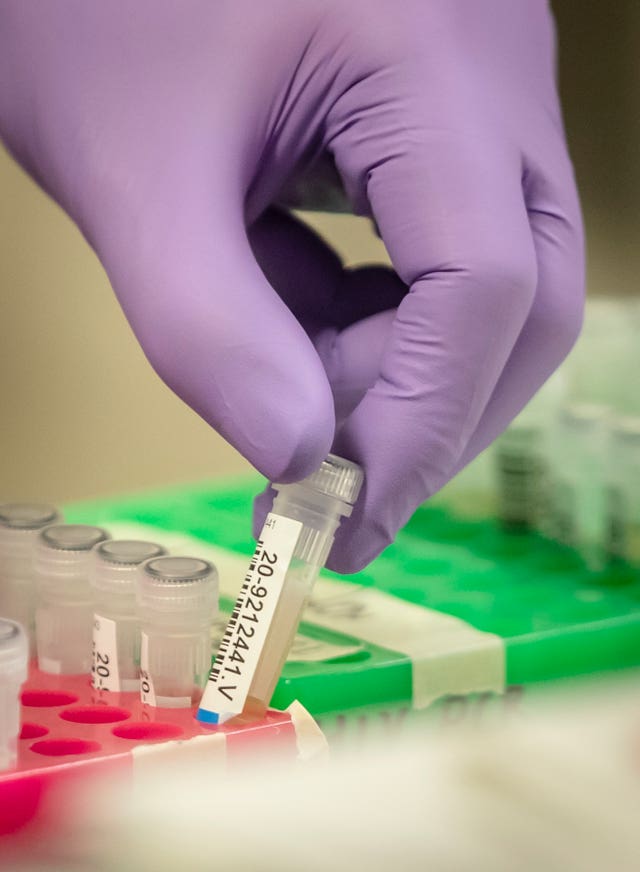Covid-19 remains in a patient’s respiratory tissue for up to a week longer if they have a severe form of the disease, a new study claims.
Analysis of 96 coronavirus patients in China revealed that virus particles persist longer and peak later in those with severe disease, compared to those with a milder form.
The virus also lasts longer in male patients and in those over the age of 60, according to the study which was published in the British Medical Journal (BMJ) on Tuesday.

Researchers estimated the viral loads – the number of virus particles – in more than 3,000 samples collected from infected patients admitted to a hospital in China’s Zhejiang province between January 19 and March 20.
The higher the viral load, the more virus particles a patient can release when they exhale or cough.
Researchers found the median duration of the virus in respiratory samples of patients with severe disease was 21 days, compared to 14 days in people with mild disease.
The number of virus particles also peaked in the second week from the onset of the disease among those in the mild group.
However, respiratory samples from patients with severe disease revealed that their viral load remained high during the third week.
The study showed that the median duration of the virus was higher in stool samples at 22 days, compared to 18 days in respiratory tissue and 16 days in the blood.
Researchers noted several limitations to their study, including the small number of participants, which could impact the accuracy of the results.
They added that the viral load is also influenced by many factors, meaning that the results they obtained only “partly reflect the amount of virus in the body”.
The study’s findings highlight the importance of carrying out strict management during each stage of severe disease to help prevent the spread of the virus.
Professor Tingbo Liang, from the First Affiliated Hospital, college of medicine at Zhejiang University in China, was the study’s author.
